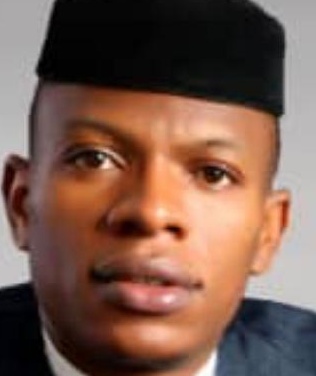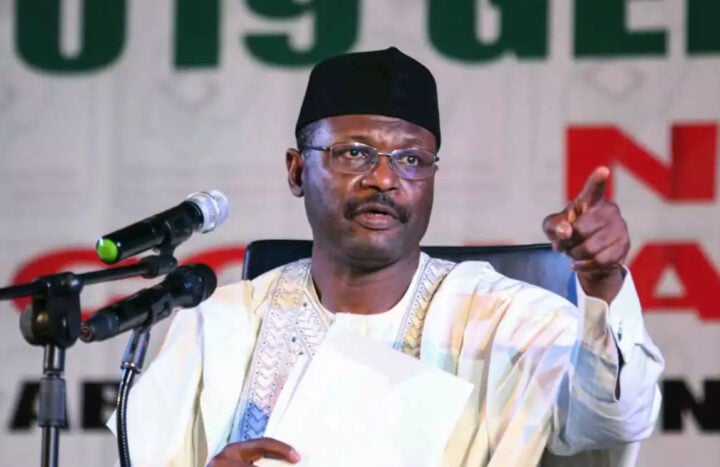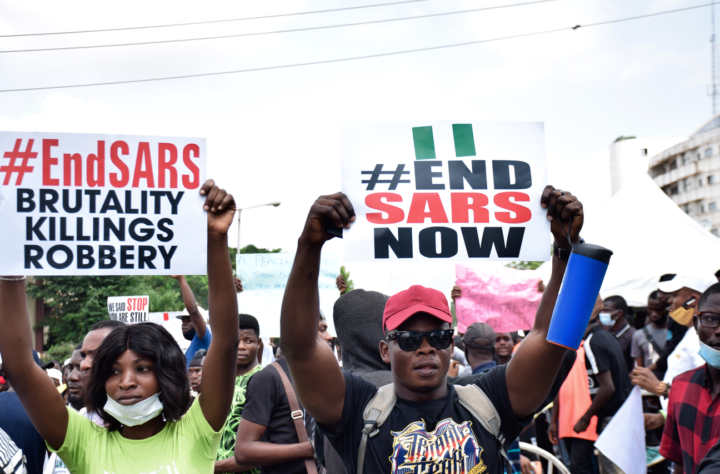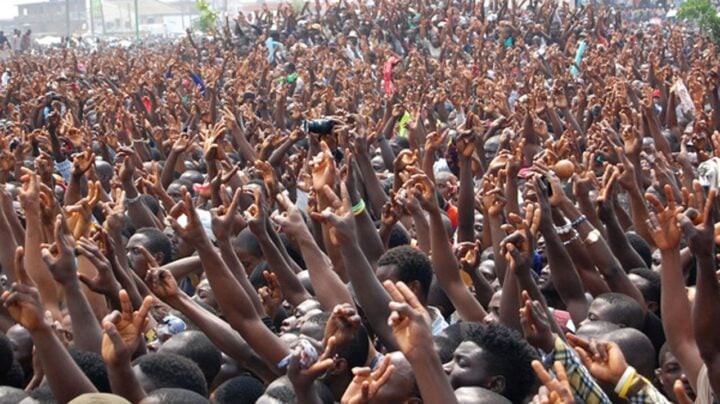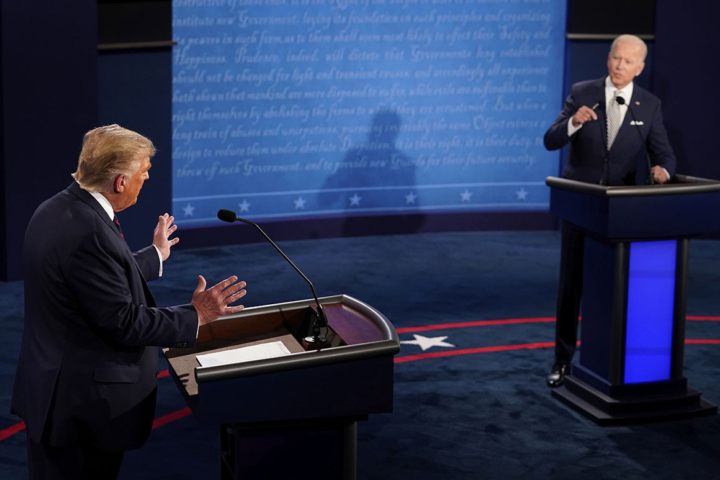It was a pleasant surprise, when last week, the Special Adviser to President Muhammadu Buhari, Femi Adesina, in a press statement announced that the President has approved the re-appointment of Professor Mahmood Yakubu as the head of the Independent National Electoral Commission (INEC), for another constitutionally guaranteed term of five years. He further indicated that the name of the nominee had been sent to the Senate for confirmation. Mahmood’s term as the headship of the commission comes to an end on the 9th of November, 2020, having succeeded the Attahiru Jega-led INEC at about this time, five years ago.
Whereas some analysts had predicted the re-appointment of the soft-spoken professor of History, there were reasons to be skeptical with their predictions: in the entire history of the Commission, it had not been led, back-back, by the same man. Prof. Attahiru Jega, would have been the first five years ago, but the pressures and the circumstances of his last major election must have led him to decline the offer; thus paving the way for Mahmood. He, therefore, makes history in that regard. But not only that, he would be the first INEC boss to oversee two presidential elections in Nigeria’s chequered political history. A rare feat by all means, by my own estimation.
So how did this come to be? Some three to four years ago, nobody would have imagined a possible reappointment for the INEC boss. His initial false starts didn’t bring him across as a man who was prepared for the job. Indeed within his first 11 months in office, the Commission earned notoriety for poorly managed and inconclusive elections. In that space, out of the 163 elections conducted by the Commission, over 26 were declared inconclusive — earning so much backlash for the Commission. Indeed the 2019 general election suffered postponement.
Of that number, the off-season election in Kogi State involving the late Abubakar Audu, whose death, in the middle of the keenly contested election set the Commission unto an unfamiliar territory, stands out. The Anambra gubernatorial election was not particularly tidy either, even though the incumbent in the poll had won a historic landslide. Enter Osun State in 2018. The election that eventually produced the Gboyega Oyetola administration in the State remains on the lips of critics who argue that the Commission rigged the polls in favour of the All Progressives Congress candidate, as the purported cancellation of results of 7 polling units, leading to a run-off poll, were done at the ward collation centres as against the polling as provided under the Electoral Act. It would take the decision of the Supreme Court to resolve the logjam; howbeit controversially too.
Advertisement
But despite the controversies that dogged his early days in office, there was a certain halo of integrity that was associated with the man. His reformist mindset and commitment to electoral transparency was not in doubt. It wouldn’t be long before they began to reap fruits. Of these, the innovation of simultaneous accreditation and voting at elections helped to tackle the perennial problem of voter apathy characterized by the former practice where voting commences several hours after accreditation.
His belief in the digitization of the electoral process as a panacea to the epidemic of election rigging was clear to all stakeholders in the election management sector. We see this in the recent innovation of the Z-pad/result viewing portal that allows electorates real-time monitoring of the results from polling units as they’re declared. This initiative so far tested in three major elections across the country has helped in no small measure to boost the confidence of the electorates in our electoral process; the lack of which has been responsible for mass apathy. While the innovation does not address the overarching problem of transmission of results, it nonetheless leaves the positive impression of a Commission conscious of the critics against it and committed to improving its processes despite its limitations by our extant laws.
In terms of transparency, it is doubtful whether the civil society community has ever enjoyed the amount of collaboration and partnership it has enjoyed under the Mahmood-INEC. This is particularly instructive when we recall that one of the major concerns of Nigerians against the Commission has to do with its hitherto opaque modus operandi. This increased level of engagement with critical stakeholders which was elevated to a policy of thumb did not only boost the public perception of the Commission but has also helped in no small measure to make the electoral process less fraught with irregularities and malpractices.
Advertisement
Testament of his overall above-average performance is being seen in the endorsements his re-appointment has received across party lines, including the major opposition, Peoples Democratic Party (PDP) who in a statement said the “reappointment has entrusted Prof Yakubu with the fate, hope, and future of over 200 million Nigerians, as well as those of generations yet unborn”. Indeed there is no way one can talk about the first five years of Mahmood without mentioning the near 100% performance of the Commission in the recent gubernatorial elections held in Edo and Ondo States despite the constraints wrought by the Covid-19 pandemic. Many pundits agree that both elections yet, remain the freest and fairest elections held in the recent history of Nigeria. Little wonder the post-election disputes that often characterize our elections have not been reported, from those elections. The reason is not far-fetched: it is easier to concede defeat, when the electioneering processes are not only free and fair, but seen to be free and fair.
But it is not Uhuru yet. And it is from this prism that the re-appointment of Mahmood by President Muhammadu Buhari can be better contextualized. As against bringing in a fresh man who would take some time to settle into the job, allowing Mahmood to see to the latter the reforms he has started, makes sense for coherency of policy and deepening the roots of the innovative practices that are still in their infancy. This is more so when he has the confidence of the masses and with little or no moral blemishes in his professional capacity.
So what does this rare opportunity mean for Mahmood? I think the PDP is right in observing that the re-appointment puts the fate of present and future generations of Nigerians on his shoulders. And I hope he doesn’t disappoint. My hunches tell me that to be able to make any meaningful impact in this new term, a sure place to start would be to ensure, by all means, the passing of the Electoral Act (Amendment ) Bill; a reformative Bill that might shape our electoral landscape forever, in terms of the ambitious and tech-driven propositions it packs.
This is particularly important in addressing the problem of mass voter apathy we have witnessed in recent years. The recently held election in Edo State sticks out in this regard, like the proverbial sore thumb, as it recorded a historical low voter turnout of 25% of the over 1.7 million eligible voters who collected their Permanent Voter Cards (PVC). Research shows that the major reason behind low voters’ turnout in Nigerian elections is the lack of confidence in the process, as many electorates are given to believe their votes won’t count. Deploying technology in the process would no doubt remedy this wide trust deficit and engender more participatory democracy. Hence, the INEC boss cannot afford to compromise on this as early as possible before the next major election in Anambra State in 2021. Thankfully, the Sen. Kabiru Gaya-led Senate Committee on INEC has assured that the bill would be passed into law before the end of the year, 2020. This is an opportunity millions of Nigerians would be expecting the INEC boss to leverage upon to deliver more free and transparent polls beyond the new standards set in Edo and Ondo States.
Advertisement
Yet, with all the best intentions in the world, I reckon that without the cooperation of key stakeholders in the electioneering process: particularly political parties, politicians and security agencies, there is little that can be achieved in terms of a benign election climate. This is what the recent elections in Edo and Ondo States teach. The particular professional conduct of the Police and other security agencies posted in the states to provide cover for the elections were no doubt instrumental in the manner the elections panned out. INEC must therefore continue the engagements with the relevant law enforcement authorities towards deepening their understanding of their roles at elections under the Electoral Act and the Constitution. Ditto, the political parties. INEC must continue the engagements with party leaders and members on their pivotal role in the success of elections starting from the pre-election processes of ward congresses, primary elections and the mainstream elections. As political parties are emblematic of any democracy, their roles matter in the success or otherwise of such democracy. INEC must deepen this messaging as democracy at the end of the day, is a marathon of engagements, dialogues and compromises.
It would amount to a costly forgetfulness not to factor the conduct of the citizens in this dynamics. There are still problems of poor voter education particularly in the far-flung corners of the country, and even recently, in the so-called urban centers too. INEC has been doing a great job at responding to this menace by deploying the mass media; to educate citizens on how they discharge the civic right to vote. Radio jingles, Newspaper advertorials, Prime Time TV advertorials, use of billboards and sign posts in public places, and in recent times, social media, have all been used to orientate and re-orientate the voter. Whilst they have yielded some fruits, there is no doubt that there is still a lot of work to be done. In this wise, vote-buying remains the elephant in the room. Despite banning the use of phones at the voting cubicles, the vote merchants have devised disingenuous ways of going about their illicit trade. This begs the question of voter education, as the only way to dis-incentivize vote trading is to make the electorates appreciate the import and consequences of monetizing their votes. Mahmood’s job is therefore cut out for him in that respect.
All things considered, there is a sense in which it can be said that many Nigerians are willing to keep their part of the “electoral bargain”. The onus, therefore, remains on INEC to prove that it is ready and committed to winning the confidence of the citizens through the conduct of elections that pass the minimum test of transparency. Mahmood Yakubu., from what one could make of his records in the last five years, seems to be aware of these expectations. The next five years, therefore, affords him the once-in-a-lifetime opportunity to raise the bar. He cannot afford to be caught sleeping on the sail.
Raymond Nkannebe, a legal practitioner and Public Policy Analyst writes from Lagos. Comments and reactions to [email protected]. He tweets @raynkah.
Advertisement
Views expressed by contributors are strictly personal and not of TheCable.
